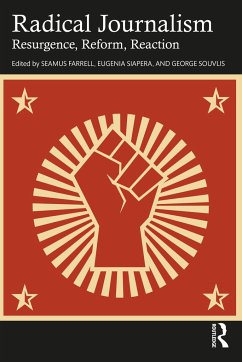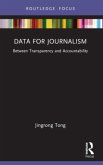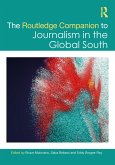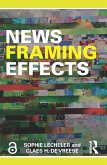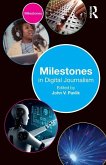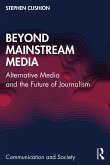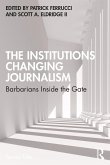This edited volume offers a state-of-the-art synthesis of the historical role of radical journalism, its present iterations, and plans for the future of a journalism that is committed to liberatory movements and politics.
At a time of profound crisis and stagnation for mainstream journalism, radical journalism seems to be riding a wave. New outlets, including those - like Jacobin - with a global reach, have sprung up, presenting a new generation of unapologetically progressive publications with an emancipatory agenda. Understanding the role and place of radical journalism becomes even more urgent given the current political climate in a (post) pandemic world with heightened inequalities and intensified pauperisation.
Drawing on contributions from leading academics, this collection considers:
- How new outlets fit in the genealogy of (radical) journalism and what their flourishing can tell us about the present and future of emancipatory politics and the role of the radical journalist;
- What these new forms and publications mean for mainstream journalism and its persisting problems of financial sustainability and professional journalistic labour;
- Important challenges presented by, for example, the resurgence of fascism, authoritarianism and the mainstreaming of the far right;
- Essential questions of what radical journalism looks like today, what forms it takes or should take, and what its future might be.
Radical Journalism is recommended reading for advanced students and journalists working at the intersection of journalism, politics, and sociology.
At a time of profound crisis and stagnation for mainstream journalism, radical journalism seems to be riding a wave. New outlets, including those - like Jacobin - with a global reach, have sprung up, presenting a new generation of unapologetically progressive publications with an emancipatory agenda. Understanding the role and place of radical journalism becomes even more urgent given the current political climate in a (post) pandemic world with heightened inequalities and intensified pauperisation.
Drawing on contributions from leading academics, this collection considers:
- How new outlets fit in the genealogy of (radical) journalism and what their flourishing can tell us about the present and future of emancipatory politics and the role of the radical journalist;
- What these new forms and publications mean for mainstream journalism and its persisting problems of financial sustainability and professional journalistic labour;
- Important challenges presented by, for example, the resurgence of fascism, authoritarianism and the mainstreaming of the far right;
- Essential questions of what radical journalism looks like today, what forms it takes or should take, and what its future might be.
Radical Journalism is recommended reading for advanced students and journalists working at the intersection of journalism, politics, and sociology.

